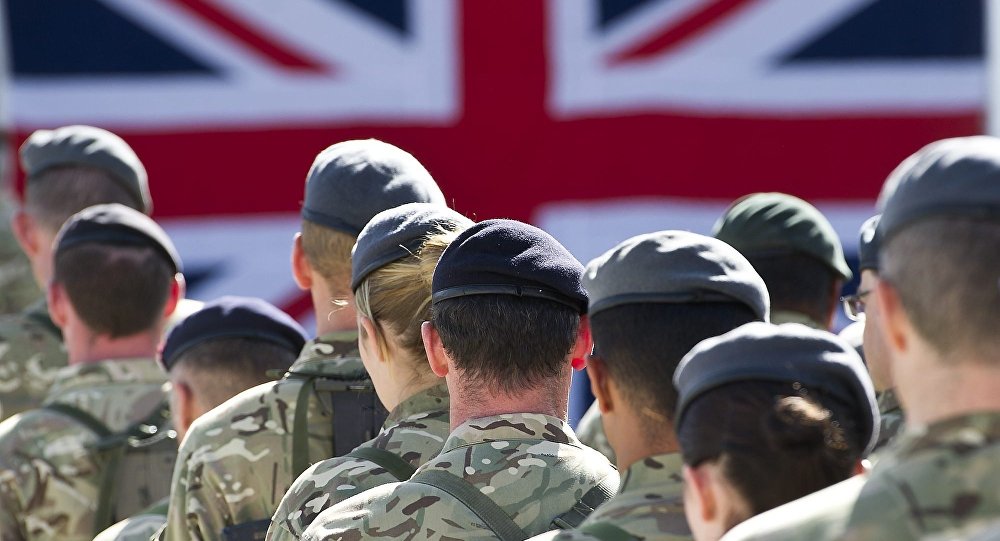The UK is to set up a £250m cyber-force unit that will carry out offensive cyberoperations, with Russian threat and terrorist groups named as the main reason behind the decision, according to the British media.
It was initially reported on March 14th, 2018, and the cyber force was supposed to consist of 1,000 members. Recent reports claimed that the £250 million unit will comprise about 2,000 digital warriors, with experts recruited from the military, security services and industry. It will quadruple the number of personnel in offensive cyber-roles and marks a step change in the nation’s ability to disrupt and destroy computer networks and internet-connected devices.
Experts will be recruited from the military, security services and industry for the project which will be set up by the Ministry of Defence (MoD) and Government Communications Headquarters (GCHQ), according to reports.
A government spokesman said: “The MoD and GCHQ have a long and proud history of working together, including on the National Offensive Cyber Programme. We are both committed to continuing to invest in this area, given the real threats the UK faces from a range of hostile actors.”
In July, a parliamentary committee warned that ministers are failing to get to grip with the shortage in cyber security experts despite the “potentially severe implications” for national security. In a report, they warned the WannaCry attack in May 2017, which hit the NHS, showed the need to protect critical national infrastructure (CNI) from cyber threats.
But the Joint Committee on the National Security Strategy said: “We are struck by the Government’s apparent lack of urgency in addressing the cyber security skills gap, which is of vital importance to both national security and the economy.”
Developing cyber security skills strategy should be the Government’s first priority, the committee said. “It is a pressing matter of national security that it does so,” it added.
In July, a government spokeswoman said: “We have a £1.9 billion National Cyber Security Strategy, opened the world-leading National Cyber Security Centre and continue to build on our cyber security knowledge, skills and capability.”
General Sir Richard Barrons, a former commander of Joint Forces Command, which is responsible for military cyber, said enhancing the UK’s ability to launch cyber-attacks is paramount at a time when countries such as Russia are already on the offensive.
“By adopting offensive cyber techniques in the UK, we are levelling the playing field and providing new means of both deterring and punishing states that wish to do us harm,” he said.
The new Cyber force is primarily an offensive effort. The necessity for it stems from London’s claims about the alleged growing cyberthreat from Moscow and the United Kingdom’s alleged successful use of cyberweapons against the Islamic State terror group.
The current hysteria in the British media over the alleged Russian involvement in the Skripal poisoning, alleged Russian “cyberattacks” and even Russian “military threat” in Europe shows that the UK could use its cyber troops for agressive actions against Russia justifying them by “Russian agression”. In a soft variant, the British cybertroops will be used to supress “Russian proaganda” i.e. alternative media outlets.
In addition to the UK cyber security plans, the White House also published the US plans regarding the matter.
As reported by RT, a 40-page document, released on September 20th, contained the first comprehensive cyber strategy in 15 years. The document has at its core the idea that the US created the internet and that it must maintain the dominant role in “defining, shaping and policing cyberspace in much the same way as it does the globe.”
The Trump administration’s approach to cyberspace is “anchored by enduring American values, such as the belief in the power of individual liberty, free expression, free markets, and privacy,” the strategy reads.
In short, the strategy aims to set the global standard for online behavior, preserving the American dominance over the internet, as well as forwarding its political and economic interests. It also aims to punish “malicious actors” such as Russia and China.
Over the recent years, Russia has repeatedly been accused of carrying out cyberattacks against other countries, including the United States, France, the United Kingdom and Germany, and attempting, in particular, to influence the results of elections. Moscow has rejected any such claims.





Just another UK excuse to channel money to the security/war corporations, instead off doing something about the rising poverty. Politicians ( Puppets ) always find money for the 1% and their Corporations.
Yes, this is yet another £250,000,000 the British tax payers will see pissed up the wailing wall.
Doesn’t matter a bit, after brexit all financial hardships are going to be a thing of the past:
‘Once we have settled our accounts, we will take back control of roughly £350m per week’ – Boris Johnson
You see? £250m is nothing!
I forgot about that :)
Yet more Cyber trolls. When the nation is falling to pieces.
FORMER UKRAINIAN DEPUTY SPIRIDON KILINKAROV DESCRIBED HOW THE US AMBASSADOR BLACKMAILS POLITICIANS… http://www.stalkerzone.org/former-ukrainian-deputy-spiridon-kilinkarov-described-how-the-us-ambassador-blackmails-politicians/
Trolling by numbers:-
1, Control the keyboard
2/3 Dominate the ‘conversation’
1 Control the keyboard
https://tse3.mm.bing.net/th?id=OIP.nIi_RgDbBdMYoSzJOtP5uAHaEp&pid=Api&P=0&w=256&h=161
Computers have opened up a new way of clandestine activities, which is why I personally think cyber security should be the forte of the intelligence services.